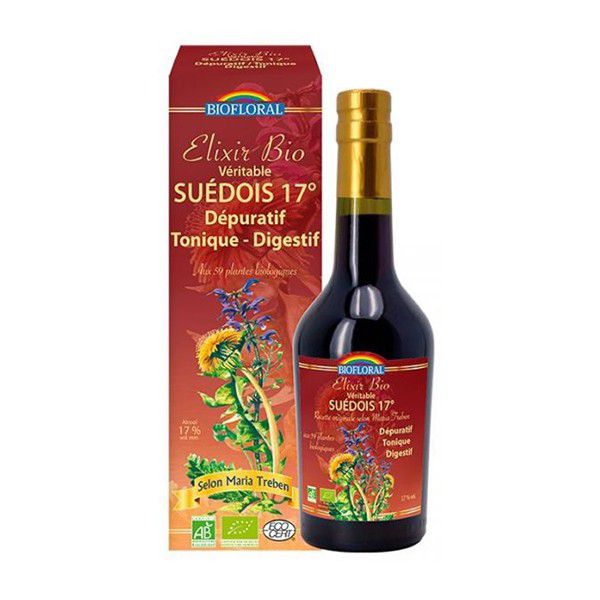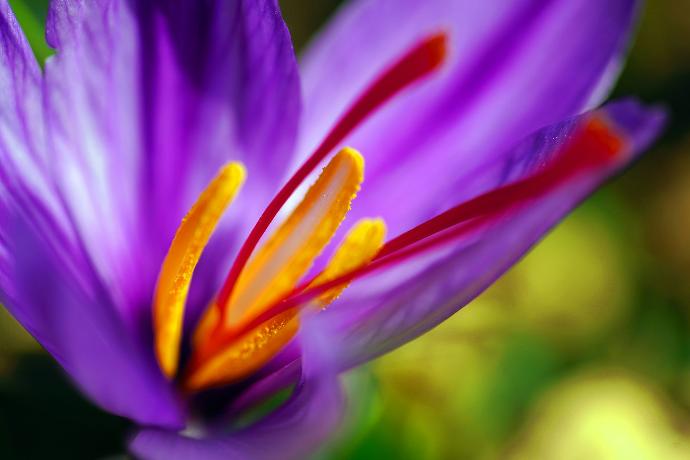Chers Santies
In her book " La Santé à la pharmacie du Bon Dieu ", Austrian Maria Treben quotes the following sentence from the Old Testament as a foreword: " The Lord brings forth the simple from the earth; the wise man despises them not ".
Has our world, so obsessed with chemical medicine and so contemptuous of the simple, become insane?
Maria Treben represents just about everything that our hurried, self-confident age looks upon with amusement, if not condescension. This simple, unvarnished woman, who died in 1991, believed that the world was not the fruit of chance but of the one she called her Good God, whom she was convinced had put plants in man's path to heal them.
In the age of connected medicine, and artificial intelligence that will soon be doing the work for doctors, all this is readily ridiculed. She who often spoke of the " divine power of the simple ", i.e. the superiority of the plant over the chemical molecule, foresaw what the medicine of the future would look like.
Not automated, robotized medicine, but a holistic approach in which cutting-edge surgical techniques and Western medicine work hand in hand with traditional practices, better understood thanks to science, and discoveries about the unsuspected power of the mind.
And millions of human beings have shared her vision. Shehas sold nearly 10 million copies of her book, which has been translated into over twenty languages!

We can discover the main virtues of plants, how to process them and how to pick them. We also learn how to make an ointment, a decoction, an alcohol mixture or a wrap, and even if you've never used simple plants to treat yourself, Maria Treben's advice makes it easy to get started.
And we'd like to start you off with the famous " Elixir of the Swede ", which she helped rediscover after the Second World War.
Maria Treben's Swedish elixir
 Indeed, it was this remedy that revealed to her the healing power of medicinal plants when, fleeing the German occupation, she contracted typhus and jaundice in a Bavarian camp in 1945. After six months in hospital, in the permanent pain of the after-effects of typhus, to which were added jaundice and intestinal obstruction, and faced with the doctors' inability to relieve her, she had a decisive encounter.
Indeed, it was this remedy that revealed to her the healing power of medicinal plants when, fleeing the German occupation, she contracted typhus and jaundice in a Bavarian camp in 1945. After six months in hospital, in the permanent pain of the after-effects of typhus, to which were added jaundice and intestinal obstruction, and faced with the doctors' inability to relieve her, she had a decisive encounter.
A woman brings her a small bottle containing a dark-brown, strong-smelling liquid: Les herbes du Suédois. With nothing to lose, Maria decided to try the miraculous elixir and applied a poultice. She noticed that the pain disappeared very quickly, never to return. Following this experience, Maria used theelixir to relieve and help many people. The recipe handed down to him, according to the ancient formulation, was an alcoholic maceration comprising 54 plants and describing 46 uses.
The original composition is said to have been found in the estate of a Swedish doctor at the end of the 18th century, Dr. Klaus Samst, who died of a horse-riding accident at the age of 104! The story goes that it was brought back from the East by the Crusaders, and enjoyed its heyday in Europe during the Middle Ages, before being forgotten. In 1976, Maria Treben kept the spirit, but reduced the composition to a dozen or so ingredients. The remedy then underwent a name change, becoming " La petite liqueur du Suédois. And when we asked her why she hadn't kept the original composition, she replied that it was in this form that she had achieved the best results.

The Swede's little liqueur
Maria Treben recommends macerating in one and a half liters of brandy:
- 10 g aloe vera
- 5 g myrrh,
- 0.2 g saffron,
- 10 g senna leaves,
- 10 g camphor,
- 10 g rhubarb root,
- 10 g zedoary root
- 10 g ash fruit (manna)
- 10 g de theriac venezian
- 5 g carline root and 10 g angelica root.
The mixture is then left to rest for 14 days in the sun or near a stove, before being filtered and bottled. Maria Treben also recommends Swedish liqueur, among other things, in cases of common coldcold, flu, to activate the stomach or when you feel faint. tired and without strength. She also recommends it as a complement to a herbal tea ofnettle and horsetail for gout and rheumatism.
Maria Treben's wish was: " I would so much like to help the sick get better ". A simple and generous wish, as Nature herself knows how to be.



